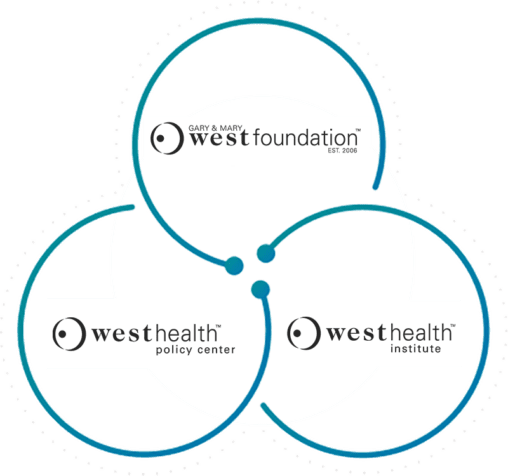We connect evidence-based best practices and models of care to smart public policy to ensure more widespread adoption.
Our Impact

In just over a decade, the U.S. will be home to more older adults than kids.
Our nation’s population is rapidly shifting, due in large part to the aging baby boom generation, and the effects will be felt across many facets of society, from healthcare to the economy.
- Grantmaking Amplified The Gary and Mary West Foundation is one of only a handful of private nonprofit foundations in the U.S. solely focused on addressing the needs of vulnerable seniors. Through its grantmaking, it strategically deploys its funding to fuel groundbreaking research, models of care for seniors and resources that improve care for seniors, their families and all Americans.
- Applied Medical Research Good ideas must be supported by even better evidence. We conduct applied medical research and collaborate with leading researchers and major academic centers to validate new models of care that lower healthcare costs and improve care for seniors.
- Policy Driven The West Health Policy Center conducts in-depth research and provides expert analysis to better inform state and federal policy decisions affecting older adults and their families.

California partners with Civica for affordable insulin
The Gary and Mary West Foundation is a founding philanthropic member of the nonprofit drug company Civica, which made history in 2023 by partnering with the State of California to provide insulin for residents in need.

Emergency care designed for seniors
West Health’s collaborations and leadership have fueled the nationwide expansion of Geriatric Emergency Departments, which address the unique needs of older adults and help reduce hospital length of stay and readmissions.
West Health is always looking for ways to improve the lives of older adults and ensure that future generations of seniors age and thrive with independence, dignity, and a higher quality of life.

